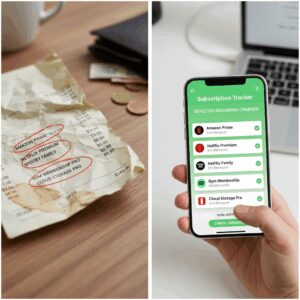
To budget for big life events without going into debt, start by planning early and setting realistic financial goals. Track your expenses and prioritize savings.
Big life events, such as weddings, buying a home, or having a baby, often come with significant expenses. Proper planning can help you avoid debt and stay financially secure. Begin by assessing your current financial situation and determining how much you can allocate towards your goal.
Create a detailed budget that includes all potential costs and set a timeline for your savings. Consistently track your spending to ensure you stay within your budget. By staying disciplined and making informed financial decisions, you can enjoy life’s milestones without the burden of debt.
Identifying Major Life Events
Big life events can include weddings, buying a house, or having a baby. Other events might be college tuition, retirement, or even starting a business. Each of these events can be expensive. Planning ahead helps manage costs.
Make a list of all your big life events. Rank them by importance. Consider which events are immediate and which can wait. This helps you decide where to allocate your money first. Sticking to this list will prevent unnecessary spending.
Setting Financial Goals
Short-term goals help with immediate needs. These include saving for a vacation or a new gadget. Long-term goals focus on bigger plans like buying a house or retirement.
Setting both types of goals is important. It ensures you are prepared for now and the future. Balancing short-term and long-term goals keeps you on track.
SMART goals are Specific, Measurable, Achievable, Relevant, and Time-bound. This framework makes goals clear and reachable.
Specific goals answer what, why, and how. Measurable goals track your progress. Achievable goals are realistic and possible. Relevant goals match your life plans. Time-bound goals have deadlines.
Using the SMART framework helps you plan better. It keeps you focused and motivated.
Creating A Realistic Budget
Planning for major life events can be overwhelming. Create a realistic budget to avoid debt by prioritizing essential expenses and saving in advance. Effective budgeting ensures financial stability and peace of mind during significant milestones.
Estimating Costs
Start by listing all potential expenses. Research each item to get accurate numbers. Consult friends or family who have experience with similar events. Use online resources for price estimates. Include hidden costs like taxes and tips. Add a small buffer for unexpected expenses. This ensures you are prepared for any surprises.
Allocating Funds
First, assess your current savings. Determine how much you can set aside each month. Prioritize essential expenses over luxuries. Create separate categories for each expense. Allocate funds accordingly. Consider cutting back on non-essential spending temporarily. This helps you save more. Use a budgeting app to track your progress. Keeping an eye on your finances ensures you stay on track.
Building An Emergency Fund
An emergency fund helps during tough times. It covers unexpected costs. This fund keeps you from using credit cards. Avoiding debt is important. It also gives peace of mind. You won’t worry about surprise expenses.
Start by saving small amounts. Set a monthly goal. Choose an amount you can save easily. Open a separate savings account. This keeps the money safe. Automate your savings. Set up a monthly transfer. This way, you won’t forget to save. Cut back on non-essentials. Save the extra money. Over time, your fund will grow.
Exploring Funding Options
Discover effective strategies for budgeting major life events to avoid debt. Explore various funding options and make informed financial decisions.
Savings And Investments
Start saving early for big events. Use a high-yield savings account. This helps your money grow faster. Invest in stocks or bonds if you can. They offer higher returns over time. Diversify your investments to reduce risk. Don’t put all your money in one place. Use a savings calculator to set goals. Track your progress regularly. Make saving a habit. It will pay off in the long run.
Alternative Funding Sources
Consider other ways to fund big events. Crowdfunding can help raise money from many people. Look into grants or scholarships if applicable. Some employers offer financial assistance programs. Ask your employer about these. Personal loans are another option. Be careful with loans to avoid high interest. Credit cards can work but watch for high fees. Use zero-interest cards if possible. Always read the fine print. Make sure you understand all terms.
Cutting Unnecessary Expenses
Start by looking at your monthly bills. Check for subscriptions you don’t use. Cancel these services right away. Review your shopping habits. Avoid buying things you don’t need. Eating out often can also be costly. Cook meals at home to save money. Small changes can make a big difference.
Make a list of your daily expenses. Find areas where you can cut back. Use public transport instead of driving. This can save you money on gas. Shop during sales and use coupons. Look for cheaper alternatives for the same quality. Reduce your utility bills by being energy-efficient. Turn off lights when not in use. Use fans instead of air conditioning when possible.
Monitoring And Adjusting Your Budget
Check your budget often to stay on track. Make sure you know where your money goes. Write down all your spending. This helps you see patterns and adjust as needed. Set reminders to review your budget. Doing this helps avoid surprises. Small changes can save you money. Keep receipts to remember what you bought. Use apps to track spending.
Unexpected costs can come any time. Create an emergency fund for these surprises. Save a small amount each month. This fund helps cover medical bills or car repairs. Review your budget and find extra money. Cut back on non-essential items. This makes it easier to handle unexpected expenses. Plan ahead for big events, like weddings or trips. This helps avoid debt.
Seeking Professional Advice
Financial Advisors can help you plan your budget. They offer personalized advice. They understand your financial situation. Advisors can create a plan that fits your needs. They help you avoid common pitfalls. They also provide guidance on saving and investing. Choosing the right advisor is crucial. Look for certified professionals. Check their experience and reviews. A good advisor can make a big difference.
There are many budgeting tools and resources available. These tools help track your spending. They make budgeting easier. Some popular tools are Mint, YNAB, and Quicken. These tools offer various features. They help you stay on track. Many of them are free or low-cost. Explore different options to find the best fit. Make use of these resources to manage your money better.
Conclusion
Managing finances for big life events is crucial. Proper planning ensures you avoid debt and stress. Use these budgeting tips to stay prepared. Prioritize saving, set realistic goals, and track expenses. With discipline and foresight, you can enjoy your milestones without financial worries.
Start budgeting today for a secure future.
Unlock Full Article
Watch a quick video to get instant access.









